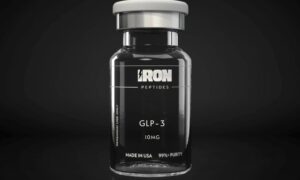Finding the best weight loss medication can be a game-changer for individuals struggling to shed excess pounds. These medications are designed to complement a healthy lifestyle by addressing common weight loss challenges such as appetite control, fat absorption, or metabolic issues. Options like Orlistat, Semifluid, and Phentermine-Topiramate have proven effective in clinical settings, helping users achieve significant weight loss when combined with proper diet and exercise. The weight loss medication for you will depend on factors like your health history, weight loss goals, and medical recommendations. It’s important to consult with a healthcare professional to determine the safest and most effective option tailored to your needs. These medications can also improve overall health by reducing obesity-related risks, such as diabetes and high blood pressure.
Understanding Weight Loss Medications
What Are Weight Loss Medications?
Weight loss medications, also known as anti-obesity drugs, are designed to aid in reducing body weight. They work through various mechanisms such as suppressing appetite, preventing fat absorption, or increasing metabolic rate. These medications can be either prescription-based or available over the counter and are tailored to individuals who face challenges in achieving weight loss through diet and exercise alone.
How Do They Work?
The effectiveness of weight loss medications lies in their targeted approach:
- Appetite Suppressants: Reduce hunger and make you feel fuller faster.
- Fat Blockers: Prevent your body from absorbing a percentage of dietary fats.
- Metabolic Enhancers: Boost the rate at which your body burns calories, even at rest.
When combined with a balanced diet and regular physical activity, these medications can significantly enhance weight loss outcomes.
Types of Weight Loss Medications
Prescription Medications
Prescription weight loss drugs are often recommended for individuals with a body mass index (BMI) of 30 or higher or those with a BMI of 27 coupled with obesity-related health issues such as diabetes or hypertension. These medications are regulated by health authorities like the FDA to ensure safety and efficacy.
Over-the-Counter Options
Over-the-counter weight loss medications and supplements are readily available and can be used as a complementary approach. They often contain natural ingredients like green tea extract or fiber-based components to aid in weight management.
Top Prescription Weight Loss Medications
Orlistat (Alli, Xenical)
Orlistat is a popular choice for Best Weight Loss Medication, especially for individuals who struggle with dietary fat intake. This drug works by blocking fat absorption in the digestive tract, ensuring that a portion of the fat consumed is not stored as body fat.
Phentermine-Topiramate (Qsymia)
A combination of two drugs, this medication suppresses appetite while enhancing feelings of fullness. It’s particularly effective for those who have difficulty controlling portions or managing food cravings.
Liraglutide (Saxena)
Originally used for diabetes management, Liraglutide is now approved for weight loss. It works by mimicking a hormone that helps regulate appetite and blood sugar levels, making it easier to consume fewer calories.
Semifluid (Wegoby)
Semifluid has gained significant attention for its effectiveness in aiding weight loss. It works by suppressing appetite and promoting longer-lasting feelings of satiety. Clinical trials have shown that it can lead to substantial weight loss when paired with lifestyle interventions.
Natural Supplements for Weight Loss
Garcinia Cambogia
Derived from a tropical fruit, Garcinia Cambogia contains hydroxy citric acid (HCA), which is believed to block fat production and suppress appetite.
Green Tea Extract
A favorite among natural health enthusiasts, green tea extract contains antioxidants like catechins that support fat-burning and boost metabolism.
Conjugated Linoleic Acid (CLA)
CLA is a naturally occurring fatty acid found in meat and dairy products. It’s widely used in supplements to help reduce body fat and increase muscle mass.
Benefits of Weight Loss Medications
Accelerated Weight Loss
One of the most notable advantages of weight loss medications is their ability to speed up fat loss, especially when combined with proper diet and exercise routines.
Improved Metabolic Health
Many medications improve key metabolic markers like blood sugar levels, cholesterol, and blood pressure, making them particularly beneficial for individuals with obesity-related health conditions.
Appetite Control
For those who struggle with emotional or binge eating, weight loss drugs can help regulate hunger and reduce the frequency of overeating episodes.
Increased Motivation
Seeing consistent progress on the scale can be a powerful motivator, encouraging individuals to stick to their healthy lifestyle changes.
Who Can Use Weight Loss Medications?
Eligibility Criteria
Best Weight loss medications are typically prescribed for:
- Individuals with a BMI of 30 or higher.
- Individuals with a BMI of 27 or higher and at least one obesity-related condition (e.g., diabetes, hypertension).
Importance of Medical Supervision
Always consult a healthcare provider before starting any medication. A doctor will evaluate your overall health, medical history, and weight loss goals to determine the most appropriate course of treatment.
Potential Side Effects
Common Side Effects
While weight loss medications are generally safe, some may cause side effects such as:
- Nausea or vomiting
- Digestive discomfort
- Dry mouth
- Increased heart rate
- Insomnia
Managing Side Effects
Most side effects are temporary and can be managed by adjusting the dosage or switching to a different medication. Always report any adverse effects to your healthcare provider promptly.
How to Choose the Right Medication
Factors to Consider
Selecting the best weight loss medication involves considering:
- Your weight loss goals
- Existing health conditions
- Budget and insurance coverage
- Potential side effects
The Role of Professional Guidance
Never self-prescribe weight loss medications. A medical professional will ensure that the chosen drug aligns with your health status and long-term goals.
Incorporating Medications with Lifestyle Changes
Healthy Eating Habits
Weight loss medications are most effective when combined with a nutrient-rich, calorie-controlled diet. Focus on whole foods like vegetables, fruits, lean proteins, and healthy fats.
Physical Activity
Exercise not only accelerates weight loss but also improves overall health. Aim for at least 150 minutes of moderate-intensity exercise per week, such as brisk walking or cycling.
Behavioral Adjustments
Adopting mindfulness techniques, managing stress, and getting adequate sleep are crucial for sustaining weight loss. Behavioral therapy can also help address emotional eating patterns.
Real-Life Success Stories
Many individuals have successfully transformed their lives using weight loss medications. For example:
- Case 1: A 35-year-old woman lost 25 pounds in six months using Semaglutide alongside a Mediterranean diet.
- Case 2: A 45-year-old man reduced his BMI by 5 points with the help of Orlistat and daily jogging.
These examples highlight how a combination of medication and lifestyle changes can lead to remarkable results.
Addressing Common Myths
Myth 1: Weight Loss Medications Are a Quick Fix
Reality: While these drugs can accelerate weight loss, they require a commitment to healthier habits for long-term success.
Myth 2: All Weight Loss Medications Are Unsafe
Reality: FDA-approved medications are rigorously tested for safety and efficacy. However, they should always be used under medical supervision.
Myth 3: Medications Work Without Diet or Exercise
Reality: Weight loss medications are tools, not magic solutions. Sustainable weight loss requires a holistic approach.
Costs and Accessibility
Pricing
The cost of weight loss medications varies based on the drug, dosage, and whether it’s a brand-name or generic version. Generic options tend to be more affordable.
Insurance Coverage
Some weight loss medications are covered by insurance plans, particularly if prescribed for obesity-related health conditions. Check with your provider to understand your options.
Future of Weight Loss Medications
Innovative Research
The weight loss medication market continues to evolve, with new drugs and delivery systems under development. Future advancements aim to offer higher efficacy with fewer side effects.
Technology Integration
Wearable devices and mobile apps are being designed to integrate with medication programs, offering personalized support and tracking for weight management.
Conclusion
Weight loss medications can provide valuable support for those struggling to achieve their goals through diet and exercise alone. By suppressing appetite, improving metabolic health, and promoting fat loss, these drugs can make a meaningful difference. However, they are most effective when paired with a healthy lifestyle. Always consult a healthcare provider to find the medication that’s right for you and embark on a weight loss journey tailored to your unique needs.



































